EDUCON2014 – Keynote Speakers
- Jennifer DeBoer, MIT, USA
- Stephen Downes, National Research Council of Canada, Canada
- Takashi Komeda, Chair of International Affair in JSEE, Vice President of Shibaura Inst. of Tech., Japan
- Reinhard Langmann, University of Applied Sciences Duesseldorf, Germany
- Alessandro Tarchini, EMEA EDU Business and Market Development, MathWorks, Italy
Jennifer DeBoer
MIT, USA
Re-conceptualizing Teaching and Learning in a New Educational Context
The platforms that facilitate Massive Open Online Courses (MOOCs) gather large quantities of data on a large and varied group of students. Student use of course content is asynchronous and unconstrained, and the kinds of data MOOC platforms collect are also new and diverse. The new educational context offered in MOOCs requires that we reconceptualize what we consider a classroom. This presentation highlights the ways in which conventional constructs such as "enrollment" and "achievement" must be rethought and redefined in order to be appropriate and useful in the MOOC space. Drawing from rich and detailed data in the first MOOC course offered by MIT, this presentation illustrates the complexities of analysis in the MOOC "classroom" and shows new approaches to describing and understanding user behavior in this emerging educational context.
The Speaker
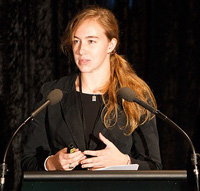 |
Jennifer DeBoer is currently postdoctoral associate for education research at MIT's Teaching and Learning Laboratory. Her research interests include the use of technology in education and the structure of engineering training for local capacity building. She employs both quantitative and qualitative methods. She completed her doctoral work at Vanderbilt University in international education policy, where she received a National Science Foundation/American Educational Research Association (AERA) dissertation award for one of her papers. She is currently the co-director of the International Institute for Developing Engineering Academics (IIDEA) and board member of the International Studies SIG in AERA. |
Stephen Downes
National Research Council of Canada, Canada
The Massive Course Meets the Personal Learner
The last few years have seen a great deal of interest in the Massive Open Online Course (MOOC) as educational institutions have made their learning materials available to students worldwide. But as it is well-known that education requires more than access to content, it is clear that another dimension is required, which can be described as 'personal learning'. This concept is the basis of the 'personal learning environment' (PLE), an idea that was popular just before MOOCs, and an idea which meets this demand for the educational experience, a form of interaction and immersion into a learning community. In this talk Stephen Downes will discuss the concept of personal learning as it relates to MOOCs and describe the framework of a program being launched by Canada's National Research Council, the 'Learning and Performance Support System', which integrates the personal learning experience with educational resources, a personal portfolio and learning record, a personal learning assistant, and automated competency development and recognition.
The Speaker
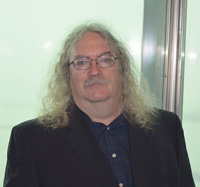 |
Stephen Downes has worked with Canada's National Research Council since 2001 as a researcher and developer in the field of online learning and new media. Currently he is the program manager of the NRC's Learning and Performance Supports Systems (LPSS) research program. Downes is widely known for his e-learning newsletter, OLDaily, which is available at his website (http://www.downes.ca), along with links to hundreds of articles and presentations delivered to teachers, administrators and educational technologists around the world. With a background in philosophy, Downes is known for the development of concepts such as e-learning 2.0 and Learning networks, is associated with a learning theory called 'connectivism', and was the co-developer of the world's first Massive Open Online Course. |
Takashi Komeda
Shibaura Institute of Technnology, Japan
The Vision for the Next Decade for the Engineering Education in Japan
Japanese Society for Engineering Education (JSEE) defines the vision for the next decade for the engineering education in Japan. Japanese engineering education system was based on the study of the basic theory at the university and, after that, when starting working in company, the job training is performed by each company. However, the changing of the industry structure and the globalization led the necessity to change the education target and method. JSEE recommends the active study, the global study and the evaluation based on outcomes. The certification from Japan Accreditation Board for Engineering Education (JABEE) is one of the solutions and the Project Based Learning (PBL) is important to urge students to the active study. Especially, global PBL includes not only the active learning but also the diversity and inclusion. I will explain the view of the Japanese enigineering education and global PBL into this speech.
The Speaker
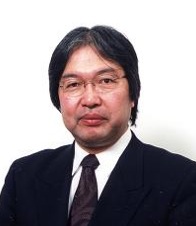 |
Takashi Komeda is currently an acting Chairman of the committee for the international section of the Japanese Society for Engineering Education (JSEE) and the President of The Association of Engineering Education Southeast Asia and East Asia and the Pacific (AEESEAP). He worked with Suzuki motor co. as a production engineer from 1979 to 1983, and then joined the University of Tokyo, as a research assistant, in 1984. Afterwards, he has joined Shibaura Institute of Technology, from 1987; he has been a full professor since 1997 and the vice President from 2009. He has been a Chairman of the curriculum committee for JAD (Japanese Associate Degree) school in Malaysia, from 2006 to 2010. His research field is mechatronics for medical and rehabilitation application; furthermore he is the Chairman of The Society of Life Support Engineering. |
Reinhard Langmann
University of Applied Sciences Duesseldorf, Duesseldorf, Germany
Industry 4.0 & Education 4.0
The Industry 4.0 project in Germany was launched in 2012 on the basis of an implementation recommendation by a research union of business and science to the German federal government, so as to ensure Germany's future as a production centre. Similar projects also exist in other high-tech countries (e.g. Obama„s program „Advanced Manufacturing“). Industry 4.0 addresses the evolutionary technological transformation involved in the merger of modern information technologies with conventional industrial processes. Education 4.0 normally stands for the future form of e-learning using the current Internet technologies for learning and educational purposes. Implementation of Industry 4.0 concepts requires excellent educated expert personnel and engineers. To this end, digital media and innovative learning technologies from the Education 4.0 methods must be utilized efficiently in order to impart complex technical learning content in a practical and competence-oriented manner. The keynote will give an overview about the education & qualification requirements for Industry 4.0 and demonstrate the implementation in the research&training factory Fab21 as an example.
The Speaker
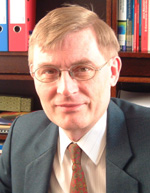 |
Dr.-Ing. Langmann is working since 1993 as a professor for Control Technology and Process Informatics in the Department of Electrical Engineering in the University of Applied Sciences Duesseldorf. Before his professorship he worked in several industrial companies as a leader for projects in manufacturing automation, robotics and man machine interfaces. At present Dr. Langmann is the director of the “Competence Center Automation Duesseldorf (CCAD)” and the head of the research and development center “Duesseldorf Telelaboratory (DT)”. His research interests are Internettechnology in automation, remote engineering and industrial communication. Dr. Langmann published more then 50 papers in special journals, about 60 presentations on national and international conferences and 6 books as author and publisher in automation technology. He is also the chairman of the German Association of Applied Automation Technology in Education and Development (VFAALE e.V.). |
Alessandro Tarchini
EMEA EDU Business and Market Development, MathWorks, Italy
Connecting the dots: MATLAB® and Simulink® help engineering education to take advantage of new teaching agents
A distinctive of the modern liquid societies is that teaching and learning happen through many diverse channels. The availability of formal, non-formal and informal education makes difficult to understand the interrelationships among various teaching and learning agents and conceive curricula with the right balance of discipline and practice.
From its observation deck, MathWorks for the last few years has been carefully watching the engineering education landscape, helping universities to test and implement new methodologies like Problem-Based Learning (PBL) and CDIO that have offered viable alternatives to “traditional” engineering education. New phenomena such as MOOCs and FabLabs are asking the education systems to renew their practices, in order to take advantage of their fresh energy.
This speech will start with a short analysis of the influence of MOOCs and FabLabs on engineering education, and will then present how educational systems might leverage them in support of modern engineering curricula.
The Speaker
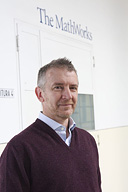 |
Born in Genova in 1962, since 1982 he has worked in ICT, initially developing firmware for numeric control systems, then spending three years at the computing data center "Sergio Borgogno", developing Finance applications for the public administration. From 1985 to 1990 Alessandro Tarchini worked in Stratos – a company providing services to Aerospace and Defense, as a consultant to aerospace companies, representing Italy in international project teams defining and developing processes for the engine management in the civil aviation business. In 1992, after moving to Teoresi, he expanded his interests to software systems for number crunching, modelling and simulation; since 1993 Tarchini has worked in favor of advanced numerical analysis techniques facilitating the adoption of MATLAB in Italy. In 2002, when the Italian operations of MathWorks Inc. were opened, Tarchini was appointed as the managing director of the new company. After managing MathWorks Italian operations for 10 years, Alessandro has now moved to the role of EMEA EDU Business and Market Development. |
